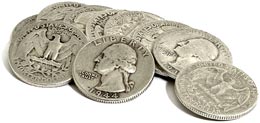
Michael Victory
Idols of the unaware
By Michael Victory
Does the average person understand what central bankers globally are doing to money? Do they realize the incredibly high rate of inflation about to cause crisis in America? I suppose the answer is no, however they will likely soon feel the effects.
 Francis Bacon (1561–1626) was an English philosopher, statesman, scientist, lawyer, jurist and author. Bacon developed a reliable method of questioning he believed would free people from dependence on infrequent geniuses (Ozmon & Craver, 2008). He encouraged individuals to develop alternative methods of thought. According to Ozmon & Craver (2008), Bacon believed that "knowledge is power," and devised what he called the "inductive method." Bacon's inductive approach insists on confirmation of specifics before reaching conclusions. Bacon urged people to reexamine all previously accepted knowledge. He believed people should free their minds of various "idols."
Francis Bacon (1561–1626) was an English philosopher, statesman, scientist, lawyer, jurist and author. Bacon developed a reliable method of questioning he believed would free people from dependence on infrequent geniuses (Ozmon & Craver, 2008). He encouraged individuals to develop alternative methods of thought. According to Ozmon & Craver (2008), Bacon believed that "knowledge is power," and devised what he called the "inductive method." Bacon's inductive approach insists on confirmation of specifics before reaching conclusions. Bacon urged people to reexamine all previously accepted knowledge. He believed people should free their minds of various "idols."
Three of Bacon's idols, according to Ozmon & Craver, (2008):
1. Idol of the Den:
People believe things because of their own limited experiences.
2. Idol of the Tribe:
People tend to believe things because most people believe them.
 3. Idol of the Marketplace:
3. Idol of the Marketplace:
This idol deals with language because Bacon believed that words often are used in ways that prevent understanding.
On Idol of the Den:
The average person underestimates the possibility of a disaster and its effects. They believe since something has never happened before it never will. We are all guilty of this as it is human nature.
On Idol of the Tribe:
The idea of a currency collapse or hyperinflation is alien to the average person. They are likely unaware of such an event. If they watch a major television network, they are likely to trust an economic recovery is underway.
On Idol of the Marketplace:
The Consumer Price Index (CPI) is a government statistic that measures consumer goods and services prices, and is used to gauge inflation in the United States. What is interesting about CPI is that it fails to recognize rising prices of food and energy. What? The cost of food and energy are not considered by government as indicators of overall inflation? Talk about unclear language that restricts understanding.
Warning Signs
Worldwide quantitative easing is flooding global money supply. This money is chasing fewer goods as more and more of the world's population ramps up consumption. Predictably, this will lead to higher prices. It is happening now, as we are already seeing food and energy prices rise significantly with price increases of 30% or more year-over-year.
Another sign of coming fiscal problems, which ultimately leads to more monetary quantitative easing, is continued uncontrolled spending of federal, state and local governments. As more money is spent, more needs to be created to monetize the debt. Quantitative easing and monetizing are trouble. Especially with a measuring stick now segmented in trillions. Monetizing will ultimately overwhelm purchasing power of everyone holding U.S. dollars, and dollar denominated assets. Inflation is set to occur at an alarming rate.
Drink Upstream
Francis Bacon urged people to reexamine previously accepted knowledge, and believed people should attempt to liberate their minds of the assorted idols. Bacon encouraged individuals to develop an alternative method of thought (Ozmon & Craver, 2008). Is there a chance the prediction of extreme future inflation is inaccurate? Yes, and I genuinely hope it is. This piece isn't really about if I'm right or wrong. It's about preparation and identifying the possibilities, because it seems likely economic recovery will not take place anytime soon. It should be easy to see, the signs are all around us.
I reckon it's still not a bad time to pick up a few pounds of extra rice, tins of tobacco and some junk silver. It is without a doubt a time to heed Francis Bacon's remarks, to free our minds and think independently.
Ozmon, H. A. & Craver, S. M. (2008). Philosophical foundations of education (8th ed.). Upper Saddle River, NJ: Pearson/Merrill Prentice Hall.
© Michael Victory
December 18, 2010
Does the average person understand what central bankers globally are doing to money? Do they realize the incredibly high rate of inflation about to cause crisis in America? I suppose the answer is no, however they will likely soon feel the effects.
 Francis Bacon (1561–1626) was an English philosopher, statesman, scientist, lawyer, jurist and author. Bacon developed a reliable method of questioning he believed would free people from dependence on infrequent geniuses (Ozmon & Craver, 2008). He encouraged individuals to develop alternative methods of thought. According to Ozmon & Craver (2008), Bacon believed that "knowledge is power," and devised what he called the "inductive method." Bacon's inductive approach insists on confirmation of specifics before reaching conclusions. Bacon urged people to reexamine all previously accepted knowledge. He believed people should free their minds of various "idols."
Francis Bacon (1561–1626) was an English philosopher, statesman, scientist, lawyer, jurist and author. Bacon developed a reliable method of questioning he believed would free people from dependence on infrequent geniuses (Ozmon & Craver, 2008). He encouraged individuals to develop alternative methods of thought. According to Ozmon & Craver (2008), Bacon believed that "knowledge is power," and devised what he called the "inductive method." Bacon's inductive approach insists on confirmation of specifics before reaching conclusions. Bacon urged people to reexamine all previously accepted knowledge. He believed people should free their minds of various "idols."Three of Bacon's idols, according to Ozmon & Craver, (2008):
1. Idol of the Den:
People believe things because of their own limited experiences.
2. Idol of the Tribe:
People tend to believe things because most people believe them.
 3. Idol of the Marketplace:
3. Idol of the Marketplace:This idol deals with language because Bacon believed that words often are used in ways that prevent understanding.
On Idol of the Den:
The average person underestimates the possibility of a disaster and its effects. They believe since something has never happened before it never will. We are all guilty of this as it is human nature.
On Idol of the Tribe:
The idea of a currency collapse or hyperinflation is alien to the average person. They are likely unaware of such an event. If they watch a major television network, they are likely to trust an economic recovery is underway.
On Idol of the Marketplace:
The Consumer Price Index (CPI) is a government statistic that measures consumer goods and services prices, and is used to gauge inflation in the United States. What is interesting about CPI is that it fails to recognize rising prices of food and energy. What? The cost of food and energy are not considered by government as indicators of overall inflation? Talk about unclear language that restricts understanding.
Warning Signs
Worldwide quantitative easing is flooding global money supply. This money is chasing fewer goods as more and more of the world's population ramps up consumption. Predictably, this will lead to higher prices. It is happening now, as we are already seeing food and energy prices rise significantly with price increases of 30% or more year-over-year.
Another sign of coming fiscal problems, which ultimately leads to more monetary quantitative easing, is continued uncontrolled spending of federal, state and local governments. As more money is spent, more needs to be created to monetize the debt. Quantitative easing and monetizing are trouble. Especially with a measuring stick now segmented in trillions. Monetizing will ultimately overwhelm purchasing power of everyone holding U.S. dollars, and dollar denominated assets. Inflation is set to occur at an alarming rate.
Drink Upstream
Francis Bacon urged people to reexamine previously accepted knowledge, and believed people should attempt to liberate their minds of the assorted idols. Bacon encouraged individuals to develop an alternative method of thought (Ozmon & Craver, 2008). Is there a chance the prediction of extreme future inflation is inaccurate? Yes, and I genuinely hope it is. This piece isn't really about if I'm right or wrong. It's about preparation and identifying the possibilities, because it seems likely economic recovery will not take place anytime soon. It should be easy to see, the signs are all around us.
I reckon it's still not a bad time to pick up a few pounds of extra rice, tins of tobacco and some junk silver. It is without a doubt a time to heed Francis Bacon's remarks, to free our minds and think independently.
Ozmon, H. A. & Craver, S. M. (2008). Philosophical foundations of education (8th ed.). Upper Saddle River, NJ: Pearson/Merrill Prentice Hall.
© Michael Victory
The views expressed by RenewAmerica columnists are their own and do not necessarily reflect the position of RenewAmerica or its affiliates.
(See RenewAmerica's publishing standards.)



















